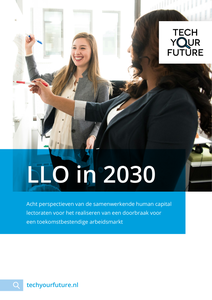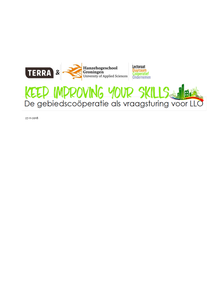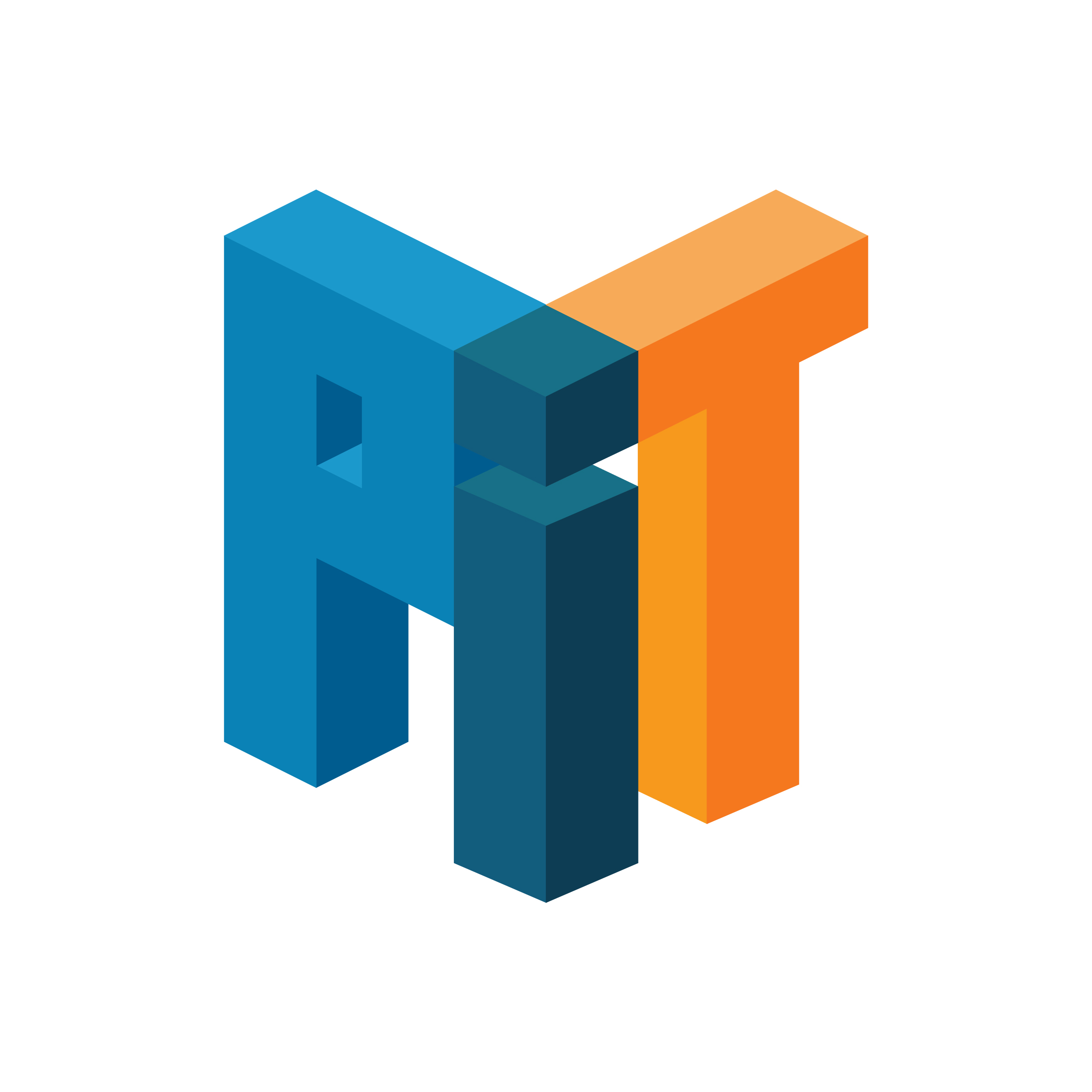Jos Sanders (HAN), Melissa Selzener (Hanze) en Harm van Lieshout (Hanze) beschouwen de transformatie van een diplomagericht naar een skillsgericht ecosysteem van onderwijs en arbeidsmarkt. Ze zien binnen deze transformatie, indachtig het werk van nobelprijswinnares Elinor Ostrom (1990), ‘skills’ in onze samenleving als een zogenaamde ‘common’. Een common is een collectief goed dat zorgzaam wordt beheerd door een gemeenschap op basis van duidelijke afspraken en regels, gefundeerd in een duidelijk normen- en waardenpatroon. Ze zien het skillsgerichte ecosysteem van onderwijs en arbeidsmarkt als een ‘system of commons’ en gebruiken Ostrom’s acht principes voor ‘governing the commons’ (1990; 2000) om tot een realistisch toekomstperspectief te komen voor de verdere ontwikkeling van een succesvol skillsgericht ecosysteem van onderwijs en arbeidsmarkt. Zij roepen de overheid op om een veel actievere, aanjagende en coördinerende rol te pakken in deze transformatie: organiseer het skillsgerichte ecosysteem en zorg voor een goed geëquipeerde hoeder (‘marktmeester’) van dat ecosysteem.
DOCUMENT

Het rapport LLO is uitgewerkt voor MBO Terra in opdracht van Groenpact ten behoeve van een conferentie in januari. Het rapport geeft inzicht in het proces van de afgelopen jaren waarin Terra heeft gezocht naar een nieuw model voor LLO; hierbij zijn systeeminnovaties vormgegeven zoals de kenniswerkplaats en de gebiedscoöperatie.
DOCUMENT

In Nederland ontstaan steeds meer initiatieven om zorg- en ondersteuningsaanbod in de wijk te ontwikkelen. Ook voor mensen met een licht verstandelijke beperking (LVB) met bijkomende problematiek. Het doel van deze initiatieven is mensen zo lang mogelijk te laten functioneren in de eigen thuissituatie en opname in een klinische setting te voorkomen. Het project (Be)Leef in de wijk sloot bij deze ontwikkeling aan. In de praktijk valt op dat mensen met LVB en bijkomende problematiek binnen hun leefomgeving nauwelijks beroep kunnen doen op een belangrijke vorm van therapie, namelijk vaktherapie. Vanwege de handelings- en ervaringsgerichte werkwijze wordt vaktherapie als een waardevolle aanvulling gezien voor mensen met LVB ten opzicht van behandelvormen met een meer verbale insteek. In dit project zijn oplossingen ontwikkeld voor de vraag vanuit de praktijk om vaktherapie beter aan te laten sluiten bij GGZ behandelteams die wijkgericht werken. Deze oplossingen betreffen een indicatiemodel en een verwijs- en behandelroute. Het indicatiemodel bestaat uit drie niveaus van indicatiegebieden voor vaktherapieën bij mensen met een LVB. Met het indicatiemodel kunnen verwijzers gerichter doorverwijzen naar vaktherapie. Met de route kan de samenwerking tussen vaktherapeuten en GGZ behandelteams verbeteren, waarbij verondersteld wordt dat dit een positieve weerslag heeft op de zorg geboden aan mensen met LVB. Deze oplossingen zijn ontwikkeld op basis van input vanuit focusgroepen en interviews en focusgroepen met in totaal 22 vaktherapeuten en 12 professionals uit GGZ behandelteams. De route (inclusief indicatiemodel) is gedurende 20 weken uitgetest in 2 GGZ behandelteams (die meerdere wijken bedienen). De samenwerking met een vaktherapeut werd als waardevol ervaren door de professionals werkzaam in de GGZ behandelteams. De vaktherapeut brengt een nieuw perspectief in dat behandelinhoudelijke en gedetailleerde informatie toevoegt aan het team. Hierdoor wordt de indicatiestelling aangescherpt wat volgens professionals van de behandelteams kan leiden tot een efficiëntere behandeling van mensen met LVB. Verder is er meer aandacht voor een voor de cliënt passende behandellocatie. Deze nieuwe aanpak biedt aanknopingspunten om de kwaliteit van behandeling te verbeteren. Verdere implementatie is hiervoor noodzakelijk. Daarvoor wordt deze Top-up subsidie aangevraagd. Meer info is te vinden via www.kenvak.nl/onderzoek/beleef-in-de-wijk/.
The focus of this project is on improving the resilience of hospitality Small and Medium Enterprises (SMEs) by enabling them to take advantage of digitalization tools and data analytics in particular. Hospitality SMEs play an important role in their local community but are vulnerable to shifts in demand. Due to a lack of resources (time, finance, and sometimes knowledge), they do not have sufficient access to data analytics tools that are typically available to larger organizations. The purpose of this project is therefore to develop a prototype infrastructure or ecosystem showcasing how Dutch hospitality SMEs can develop their data analytic capability in such a way that they increase their resilience to shifts in demand. The one year exploration period will be used to assess the feasibility of such an infrastructure and will address technological aspects (e.g. kind of technological platform), process aspects (e.g. prerequisites for collaboration such as confidentiality and safety of data), knowledge aspects (e.g. what knowledge of data analytics do SMEs need and through what medium), and organizational aspects (what kind of cooperation form is necessary and how should it be financed).Societal issueIn the Netherlands, hospitality SMEs such as hotels play an important role in local communities, providing employment opportunities, supporting financially or otherwise local social activities and sports teams (Panteia, 2023). Nevertheless, due to their high fixed cost / low variable business model, hospitality SMEs are vulnerable to shifts in consumer demand (Kokkinou, Mitas, et al., 2023; Koninklijke Horeca Nederland, 2023). This risk could be partially mitigated by using data analytics, to gain visibility over demand, and make data-driven decisions regarding allocation of marketing resources, pricing, procurement, etc…. However, this requires investments in technology, processes, and training that are oftentimes (financially) inaccessible to these small SMEs.Benefit for societyThe proposed study touches upon several key enabling technologies First, key enabling technology participation and co-creation lies at the center of this proposal. The premise is that regional hospitality SMEs can achieve more by combining their knowledge and resources. The proposed project therefore aims to give diverse stakeholders the means and opportunity to collaborate, learn from each other, and work together on a prototype collaboration. The proposed study thereby also contributes to developing knowledge with and for entrepreneurs and to digitalization of the tourism and hospitality sector.Collaborative partnersHZ University of Applied Sciences, Hotel Hulst, Hotel/Restaurant de Belgische Loodsensociëteit, Hotel Zilt, DM Hotels, Hotel Charley's, Juyo Analytics, Impuls Zeeland.
Carboxylated cellulose is an important product on the market, and one of the most well-known examples is carboxymethylcellulose (CMC). However, CMC is prepared by modification of cellulose with the extremely hazardous compound monochloracetic acid. In this project, we want to make a carboxylated cellulose that is a functional equivalent for CMC using a greener process with renewable raw materials derived from levulinic acid. Processes to achieve cellulose with a low and a high carboxylation degree will be designed.
Centre of Expertise, part of Zuyd Hogeschool

Consortium, part of Saxion
